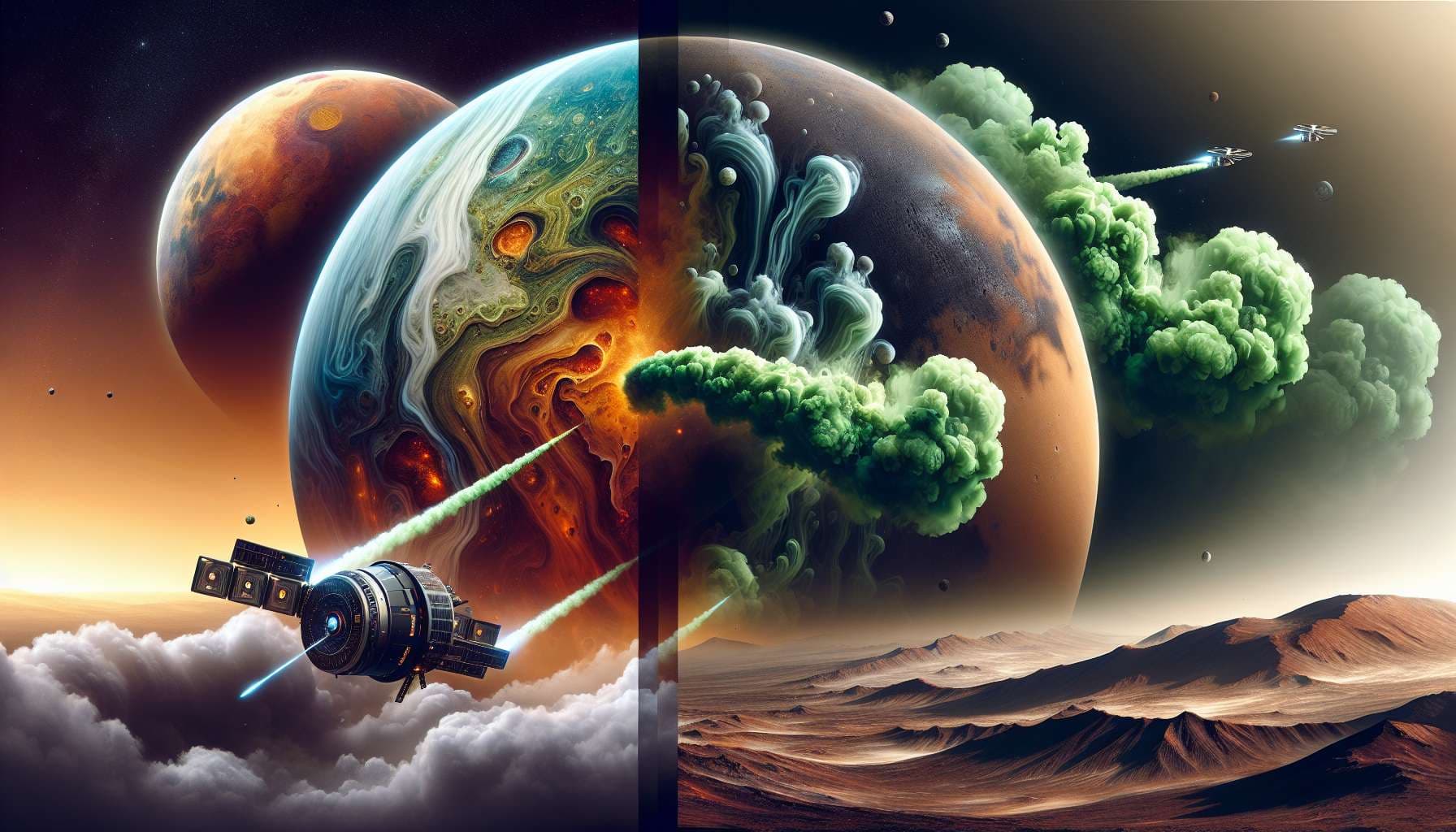
While Mars often gets the spotlight in discussions about terraforming, there are compelling reasons to consider Venus as the frontrunner in this planetary transformation race.
The atmosphere of Venus is already habitable, and could be used for staging terraforming efforts. Venus has more solar energy potential. Venus has a surface gravity of 8.87 m/s², which is close to Earth's 9.81 m/s², compared to Mars' 3.71 m/s². This higher gravity helps Venus retain an atmosphere more effectively than Mars.
Venus is closer to Earth than Mars, reducing travel time. Venus's thick atmosphere is primarily carbon dioxide, which can be converted into oxygen through processes like photosynthesis or chemical reactions. While the atmospheric pressure on Venus is dense, it may be easier to remove atmosphere than to enhance the thin atmosphere of Mars.
Will resolve N/A if neither planet is terraformed in 175 years.
The atmosphere of Venus is already habitable, and could be used for staging terraforming efforts.
Habitable is a stretch, since upper atmosphere is still acidic and non-breathable. Also, the challenges of making a floating colony are significant.
Venus has more solar energy potential.
Fair point. Total energy available is an important consideration, especially if using bioengineered life to do the terrforming with (e.g. lichen).
Venus has a surface gravity of 8.87 m/s², which is close to Earth's 9.81 m/s², compared to Mars' 3.71 m/s². This higher gravity helps Venus retain an atmosphere more effectively than Mars.
This suggests that, if already terraformed, Venus might be a better planet. But I don't think it makes Venus easier to terraform.
Venus is closer to Earth than Mars, reducing travel time.
Travel time isn't the most important metric for moving a lot of supplies between the planets, delta-v is. From LEO to orbiting either planet is pretty similar (around 4 km/s, if ChatGPT can be believed).
Venus's thick atmosphere is primarily carbon dioxide, which can be converted into oxygen through processes like photosynthesis or chemical reactions. While the atmospheric pressure on Venus is dense, it may be easier to remove atmosphere than to enhance the thin atmosphere of Mars.
This one's an interesting point, as it starts to establish a proposal for how to terraform: Sequester the carbon, then reduce quantity of the remaining gasses, lowering the pressure. Perhaps the resulting O2 could be bound to minerals, for example.
You didn't mention that the Venus day is 243 earth-days long (Mars day is almost equal to Earth's). As you might imagine, such a long day makes for much larger temperature fluctuations, and is a huge consideration in habitability.
It's an interesting question, and a fun one to nerd out about!